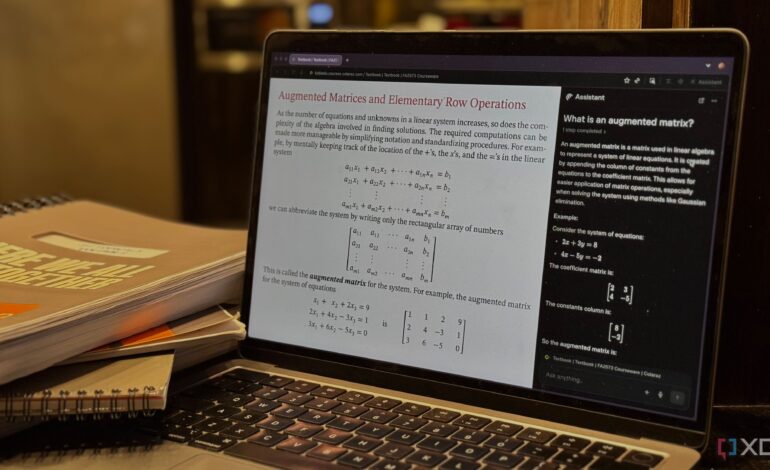College Student Discovers Power of AI Browsers for Studies

A full-time college student has found significant benefits from using AI browsers, transforming their approach to studying. After testing various AI-driven browsers, such as Perplexity’s Comet, ChatGPT’s Atlas, and Opera’s Neon, they have integrated these tools into their academic routine, leading to enhanced productivity and a more streamlined workflow.
The student, who has immersed themselves in the world of AI browsers, initially underestimated their impact on educational tasks. However, they quickly realized that these tools could simplify their studies. With AI browsers, users can obtain answers to questions without needing to open separate tabs, allowing them to maintain focus on their work. This feature has reduced the chaos of endless searches and minimized distractions caused by navigating multiple browser tabs.
AI Browsers Enhance Learning Experience
The integration of AI capabilities into web browsers has proven particularly beneficial for accessing educational content. For instance, YouTube videos can be challenging to navigate due to their length and volume. AI browsers offer the ability to interact with video transcripts, allowing users to quickly locate specific information. Instead of manually scrubbing through videos, students can simply ask the AI if a particular subtopic is covered. If so, the AI provides the exact timestamp, saving valuable time during study sessions.
The convenience of AI browsers extends to understanding complex class materials. When grappling with a challenging concept, students can utilize tools like NotebookLM and ChatGPT’s Study Mode for tailored explanations that cater to their individual learning pace. This immediate access to clarifying information has become a vital resource for many learners.
Agentic AI Features Streamline Workflows
Beyond basic question-and-answer capabilities, AI browsers are equipped with agentic AI features that automate routine tasks. Unlike traditional browsers, which require manual input for repetitive activities, these advanced tools can take initiative, significantly reducing the burden of monotonous tasks. For example, the student has effectively combined NotebookLM with their Google Calendar to create an optimized to-do list and schedule. The agentic AI seamlessly adds tasks to their calendar, eliminating the need for manual entry.
Additionally, the student has leveraged agentic AI to automate the completion of lengthy course evaluations, a task often met with reluctance. By allowing AI to handle these repetitive forms, they save time while ensuring their responses remain consistent.
As a result of these advancements, the student has expressed that returning to a traditional browser for academic purposes seems unlikely. The integration of AI tools into their daily studies has led to a notable increase in productivity, demonstrating the potential of technology to enhance learning experiences.
In conclusion, the growing adoption of AI browsers among students highlights their transformative role in education. By offering streamlined access to information and automating tedious tasks, these tools represent a significant step forward in the intersection of technology and academia. The implications for the future of learning are vast, suggesting that AI may continue to reshape how students engage with their studies.






